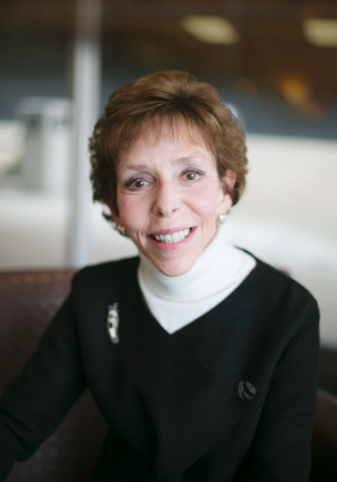
Keith & Martin/Martin & Keith: Elegy for the \aut\BAR
“From 1995 to 2020, Ann Arbor’s Aut/Bar was the mecca for the LGBTQ+ community. Its founders, Martin Contreras and Keith Orr, created a cultural and political hub that bridged the AIDS era with assimilation of the queer community and urban gentrification. This film is both tribute and elegy to a moment of significant hope when Ann Arbor lived up to its reputation for harboring a tolerant and liberal-minded population. It is dedicated to the two men who were at its heart and whose proud determination to make it happen was both fierce and tender.” - Peter Sparling

AADL Talks To: Francis Blouin

In this episode, AADL Talks To Francis Blouin. Francis joined the University of Michigan’s Bentley Historical Library in 1974 and was director for over 30 years. Francis shares his memories of working at the Bentley, some of the special acquisitions and projects he oversaw during his tenure, and he discusses the many transitions he witnessed in the archives field.
Francis is Professor Emeritus in the History Department at the University of Michigan.
Historical articles and photos about the Bentley Historical Library.

AADL Talks To: Janis Bobrin

Janis Bobrin came to the University of Michigan in 1969 to study urban planning and quickly became politically active in environmental issues with a particular interest in water resource management. She eventually served six terms as Washtenaw County Drain Commissioner. Since retiring as Drain Commissioner in 2012, Janis has served on numerous regional boards including the Huron River Watershed Council, the Michigan League of Conservation Voters, and Dawn Farm. Janis talks with us about some of the projects she undertook as Drain Commissioner and the many challenges she and her staff faced over the years. She also talks with us about Ann Arbor's ongoing efforts to address the Pall-Gelman dioxane spill and issues surrounding urban planning and density.
Read more about Janis Bobrin in historical articles from the Ann Arbor News and Ann Arbor Observer.
JCC Conversations | Fred Upton, Debbie Dingell and Ryan Clancy
Ryan Clark of No Labels, and Representatives Debbie Dingell (D-12th CD) and Fred Upton (R-4th CD) of the Problem Solvers’ Caucus discuss prospects for bipartisan legislation in Congress. Learn how goodwill still exists and how it can be effective with the support of No Labels, even in today’s polarized political climate.
JCC Conversations | Yalcin Yanıkoğlu and Bob Chunn
Yalcin Yanıkoğlu and Bob Chunn have been intimately involved in helping create and evaluate proposed maps with their proprietary software. Chuck asked them to evaluate the Independent Redistricting Commissions maps so citizens can knowledgeably comment on them while there is still time.
AADL Productions Podcast: Lola Jones and Carol Gibson
Lola Jones and Carol Gibson are well-known to anyone familiar with Ann Arbor history. Over the past 30 years they have sought out and documented the history of the African American experience in Ann Arbor through a series of projects under the moniker Another Ann Arbor; it is largely through their work that the Ann Arbor African American story is a part of our shared community identity. Lola and Carol stopped by the library to talk with us one day about the work they have done over the years and where they are headed next. They shared with us some of the interesting people and events they have learned about and brought to the community in their television program, their documentaries, and their book. You can now watch one of their documentaries online at aadl.org in our video collection. A Woman's Town was produced in 1991 and tells the story of Ann Arbor through the voices of prominent African American women.
Author Event | William D. Lopez: Separated: Family and Community in the Aftermath of an Immigration Raid
In Separated: Family and Community in the Aftermath of an Immigration Raid, local author William D. Lopez examines the lasting damage done by this daylong act of collaborative immigration enforcement in Washtenaw County, Michigan.
Exploring the chaos of enforcement through the lens of community health, Lopez discusses deportation's rippling negative effects on families, communities, and individuals. Focusing on those left behind, Lopez reveals their efforts to cope with trauma, avoid homelessness, handle worsening health, and keep their families together as they attempt to deal with a deportation machine that is militarized, traumatic and implicitly racist.
This event was part of the 2020 Washtenaw Reads. For more information about Washtenaw Reads and previous years' reads, visit wread.org.
Sustainable Ann Arbor Forum | Race and Class Equity in Washtenaw County
Ann Arbor is the eighth most socioeconomically segregated metro area in the U.S.; the second most segregated city in the nation in service class segregation; and the fifth in working class segregation. In 2010, Census data shows white residents accounted for 73% of Ann Arbor's population, just under Michigan's average of 79%, while African American residents accounted for just 8% of residents—nearly half of the state average of 14%. Ypsilanti, on the other hand, is made up of 62% white residents and 29% African American residents: a dramatic imbalance for two closely tied cities. Housing is a social determinant of health so where you live matters. Join local experts as we delve into the issues and opportunities surrounding race and class equity throughout Ann Arbor and Washtenaw County.
Panelists include:
- Dr. Tony Reames (Assistant Professor, School for Environment and Sustainability, University of Michigan),
Who Holds the Power: Policing in Ann Arbor
Who holds the power in Ann Arbor when it comes to law enforcement? What does that mean for those who are not in power? How has this all changed over time? A panel of local experts discuss the role of police around the city and on the University of Michigan campus.
This was the second of a series series of discussions addressing the question: Who holds the power in Ann Arbor? The series, a partnership with the Michigan Daily, was made possible by the Poynter College Media Project.
Farms and Open Space: Preserving Rural Washtenaw County
A panel of experts from Washtenaw County government agencies and nonprofits discuss what we can do to preserve farmland, forests, open space, and natural areas in Washtenaw County. They will highlight what efforts are already under way, and how we can expand efforts to help local farmers and conservationists.
This panel includes members from the Mindful Eating Team of the Ann Arbor Unitarian Universalist Congregation, the Park Planning and Natural Areas Planning Department of Washtenaw County, members of the Legacy Land Conservancy, local farmers, and Argus Farm Stop.
This event is in partnership with the Unitarian Universalist Church of Ann Arbor.